No one likes swimming in a cold pool, especially when pool heaters exist. And if you own a heater, I’m sure you especially don’t like playing the waiting game. Once thought as a luxury item, swimming pool heaters are becoming a necessity for pool owners everywhere. Pool heaters add comfort to your swimming experience and can extend your swimming season for weeks.
One of the most frequently asked questions we hear from pool owners is, “How long does it take to heat a pool?” This is an important question because it helps pool owners determine what size pool heater they need to purchase for their pool and how long in advance they need to start their heater so that it is warm enough to swim.
Overall, buying a heater that is too small for your pool is counterproductive. Even if only for monetary purposes, it’s a good idea to know how long it will take to heat your pool.
Are You Purchasing a Heater Or a Heat Pump?
Determining how long it takes to heat your pool depends on a couple of different things. Have you determined if you are purchasing a heater or a heat pump? Sure they both heat your pool, however, they do so in very different ways. Let’s dig a little deeper.
Heat pumps are unique pieces of equipment in the sense that they don’t create their own heat. Instead, it pulls heat from the ambient air and uses it to heat your pool water. If you live in a colder environment, you can see how this may present a problem. Heat pumps operate best when temperatures are above 50 degrees Fahrenheit. In temperatures below that, heat pumps cannot efficiently perform. As a result, pool owners need to run their heat pumps longer in order to heat their pool. That is why it is crucial to consider the average temperature in your area, especially during the cooler months, before purchasing your heat pump.
An undersized heat pump must run longer in order to heat the swimming pool. Longer running times mean a decrease in efficiency and higher operating costs. In short, it’s an all-around bad situation and purchases a gas heater instead.
Calculating Heat Run Time
Heat pumps and heaters, alike, are sized according to the British Thermal Units (BTU) per hour. One BTU raises one pound of water by 1 degree F. One gallon of water weighs 8.34 pounds. So, 8.34 BTUs raise one gallon of water by 1 degree F.
FORMULA: Determine the time required to increase water temperature by 1 degree F
# of gallons in pool X 8.34 = ___________ lbs. of water
______ pounds of water / BTU Size = The hours it takes to raise the water temperature by 1 degree F
EXAMPLE
You have a 20,000-gallon pool and use a 125,000 BTU heater. Your water is currently 70 degrees F but you would like it to be a minimum of 80 degrees F. How long will it take before the pool water reaches 80 degrees F?
20,000 x 8.34= 166,800 lbs
166,800/125,000= 1.33 hrs to increase 1 degree
80-70= 10 degree difference
10 x 1.33= 13.34 hours of heating before the pool reaches 80 degrees F.
In most cases, calculations for a heat pump and heater are optimistic. For heat pumps, the efficiency varies depending on the air temperature and therefore the calculations cannot account for cooler temperatures. The listed BTU size is when the air is quite warm.
Gas heaters are more consistent, however, they are also less efficient. They are only about 80% efficient, which needs to be factored in. Also, you can always expect to lose heat overnight, increasing your overall heating time. After using this formula to calculate how long it takes to heat up your pool, it’s always a good idea to round up to account for heat loss and efficiency. The formula gives pool owners rough estimates, not exact times.
[dyamic_ad]
Pentair’s Heat Pump Calculator
Typically, I’m not a huge fan of online calculators because they’re usually not very user-friendly or accurate. However, the heat pump calculator on the Pentair website is user-friendly and provides everything you need when purchasing a heat pump. The Pentair calculator tool captures information about a pool’s location, size, and configuration to provide the right heat pump solution to fit a pool owner’s specific needs.
Here is a screenshot of a pool owner in Florida. The chart shows the average air temperature for each month, the running time, and the overall costs of consumption. Access Pentair’s Heat Pump Calculator here.
Other Resources
The best thing about heaters and heat pumps is that it allows pool owners to take full advantage of their swimming pool, even when the weather is not ideal. What isn’t ideal is having your party guests arrive at an ice-cold swimming pool. We always recommend planning ahead. It’s imperative to remember that even after you have completed your calculations and have a good idea about how long it takes to warm your pool, you are still unable to account for other variables such as the outside temperature, efficiency, and heat loss through evaporation. It’s always a good idea to round up when determining how long you should run your heater or heat pump. This gives you a little cushion room for unpredictable variables.
Heaters and heat pumps are big expenses. As a result, pool owners are very careful and strategic about the use and operation of their heat pumps or heaters. However, it’s not uncommon for pool owners to run into issues concerning their heaters. To better assist pool owners with their heaters, here is a list of other informative blogs related to heaters.

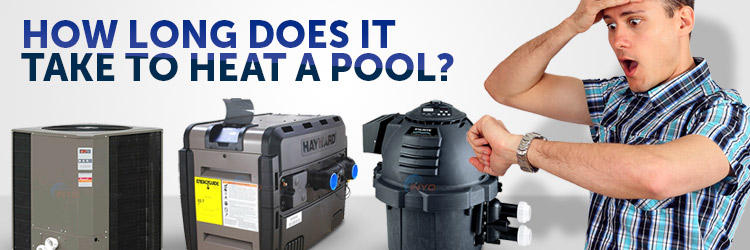
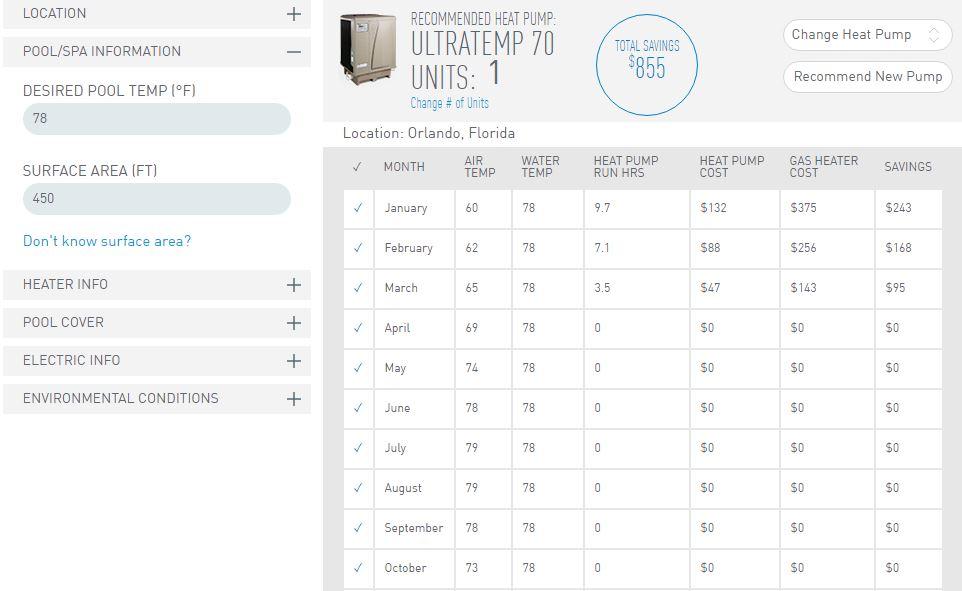


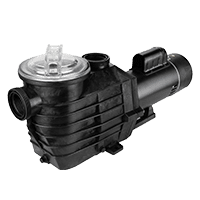
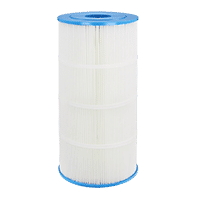
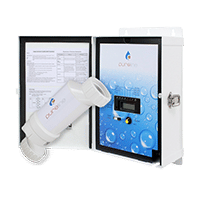
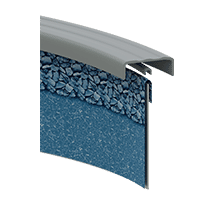
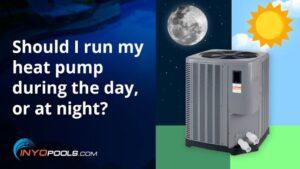


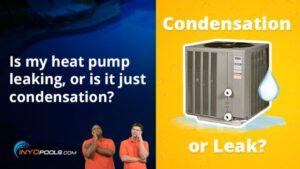
Leave a Reply